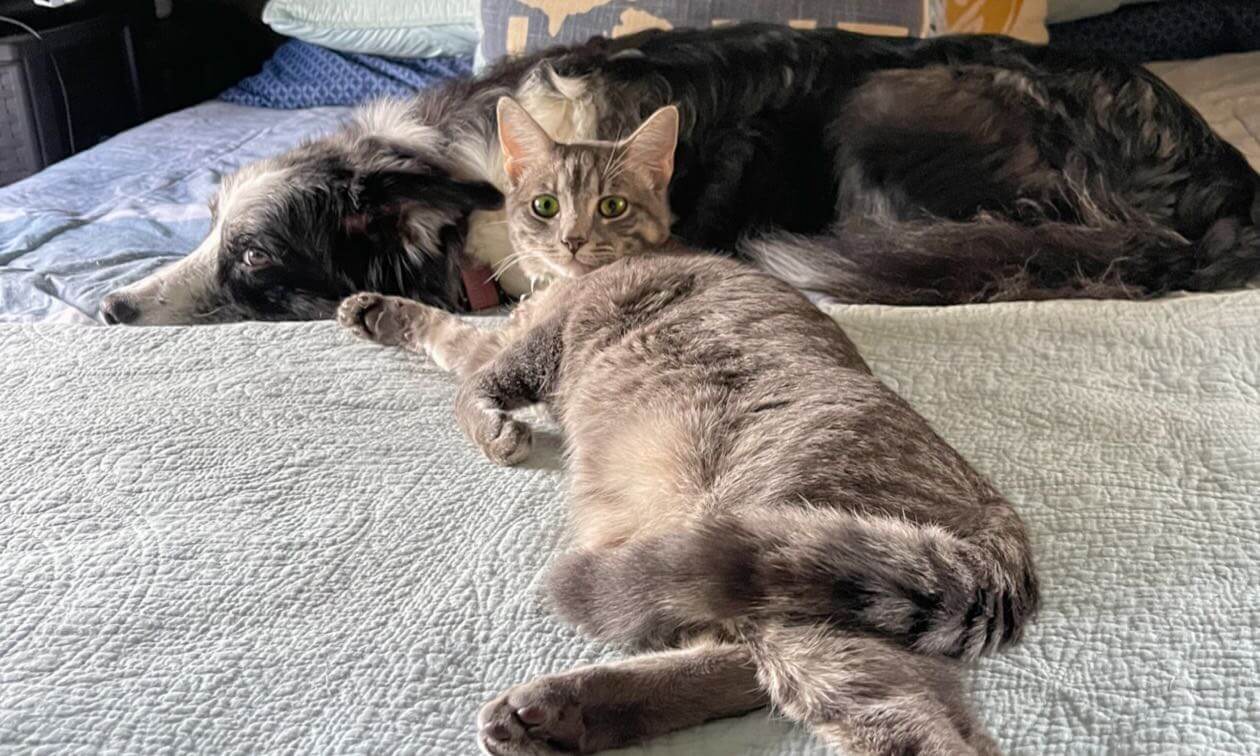Whether you've already made the important decision to have your pet vaccinated or you're doing your research, you’re likely wondering about things like side effects and temporary post-vaccine reactions. Understanding what vaccine reactions can rarely occur and how to deal with them will help make vaccinating your pet an easy decision to prevent serious and potentially deadly diseases.
Common Reactions to Pet Vaccines
After receiving a vaccination, your dog or cat may experience mild side effects that can include one or more of the following:
- Discomfort at the vaccination site
- Swelling at the vaccination site
- Mild fever
- Decreased appetite
- Decreased activity level
For pets who received an intranasal vaccination (a mist given through the nose instead of as an injection), they may have a:
- Sneeze
- Cough
- Runny nose
- Other respiratory symptoms
These are all normal reactions that are no cause for concern, but if any of these symptoms last more than a day or two or seem severe, contact your veterinarian.
Some vaccines, especially rabies, can cause a small, firm swelling to develop under the skin at the injection site. This swelling should subside within a couple of weeks. Contact your veterinarian if the site remains swollen beyond three weeks, is painful, or increases in size.
Serious Side Effects of Pet Vaccines
Side effects of pet vaccines that require immediate attention include:
- Facial swelling
- Non-stop vomiting
- Persistent diarrhea
- Hives (skin is bumpy and itchy)
- Itchiness
- Weakness or collapse
- Severe coughing or difficulty breathing
How Common Are Vaccine Reactions in Dogs and Cats?
Vaccine reactions in both dogs and cats are considered uncommon. The chance of a reaction from vaccines is low — approximately one to five reactions per 10,000 vaccinations.1,2 They typically occur within minutes to hours following vaccination. Immediate medical attention is required because they can be life-threatening. Therefore, it may make sense to split up vaccine doses in small breed dogs but speak to your veterinarian about their protocol.
With regards to cats, adverse reactions post-vaccination are thought to be rare. A substantial survey conducted by Banfield Pet Hospital revealed that within 30 days of vaccination, an adverse reaction rate was only found in 0.52% of cats.2 Reducing the vaccine amount by half is not a valid alternative and, if done, will result in insufficient protection for your pet.
How To Lessen The Chances Of Vaccine Reactions in Dogs and Cats
If your pet has a history of vaccine reactions (be they very mild or severe) be sure to inform your veterinarian before future vaccines. This will help your veterinarian determine if your pet is a candidate for vaccines and whether any precautions should be taken.
Some reactions can be easily avoided by pre-treatment with antihistamines that your veterinarian can recommend. Even if your pet was pre-treated with medication, monitoring them for a full day following vaccines is always recommended.
If you are concerned, Limiting the number of vaccines administered at one time can also decrease the likelihood of a reaction. Your veterinarian may spread vaccines out by three to four weeks if multiple vaccines are due at the same time.3 Vaccinating your pet is the best thing to do to keep them happy and healthy. Your veterinarian can talk to you about which vaccines are best for your pet and answer any other concerns you may have.
Why The Benefits of Vaccines Outweigh the Risks
The development of vaccines for both animals and people has prevented countless deaths. In a year, at least two to three million human deaths are prevented, and even more animal lives are saved.3
By vaccinating pets, pet owners protect themselves and others from zoonotic diseases (diseases that pass from animals to people). For example, bites from infected dogs account for 95% of human rabies cases.4
Since vaccines help prevent illness, they also minimize expensive treatments for disease. For example, treating a dog with parvovirus can cost upwards of $2,1004 versus a vaccine that costs between $30 and $50. (And you're sparing your pet the pain and trauma of the illness and recovery.)
Vaccinating your pet is the best thing to do to keep them happy and healthy. Your veterinarian can talk to you about which vaccines are best for your pet and answer any other concerns you may have.
ZPC-02565
Why Should my Pet be Vaccinated? AAHA. https://www.aaha.org/your-pet/pet-owner-education/ask-aaha/Pet-Vaccination/. Accessed February 27, 2023.
- Adverse Postvaccination Reactions. AAHA. https://www.aaha.org/aaha-guidelines/2020-aahaaafp-feline-vaccination-guidelines/adverse-postvaccination-reactions/. Accessed February 27, 2023.
- Value of Vaccination. Global Animal Health Association. https://www.healthforanimals.org/resources/newsletter/articles/value-of-vaccination/. Accessed February 27, 2023.
- Parvo Treatment Cost: What to Expect. Metlife. https://www.metlifepetinsurance.com/blog/pet-health/parvo-treatment-cost/. Accessed February 27, 2023.



